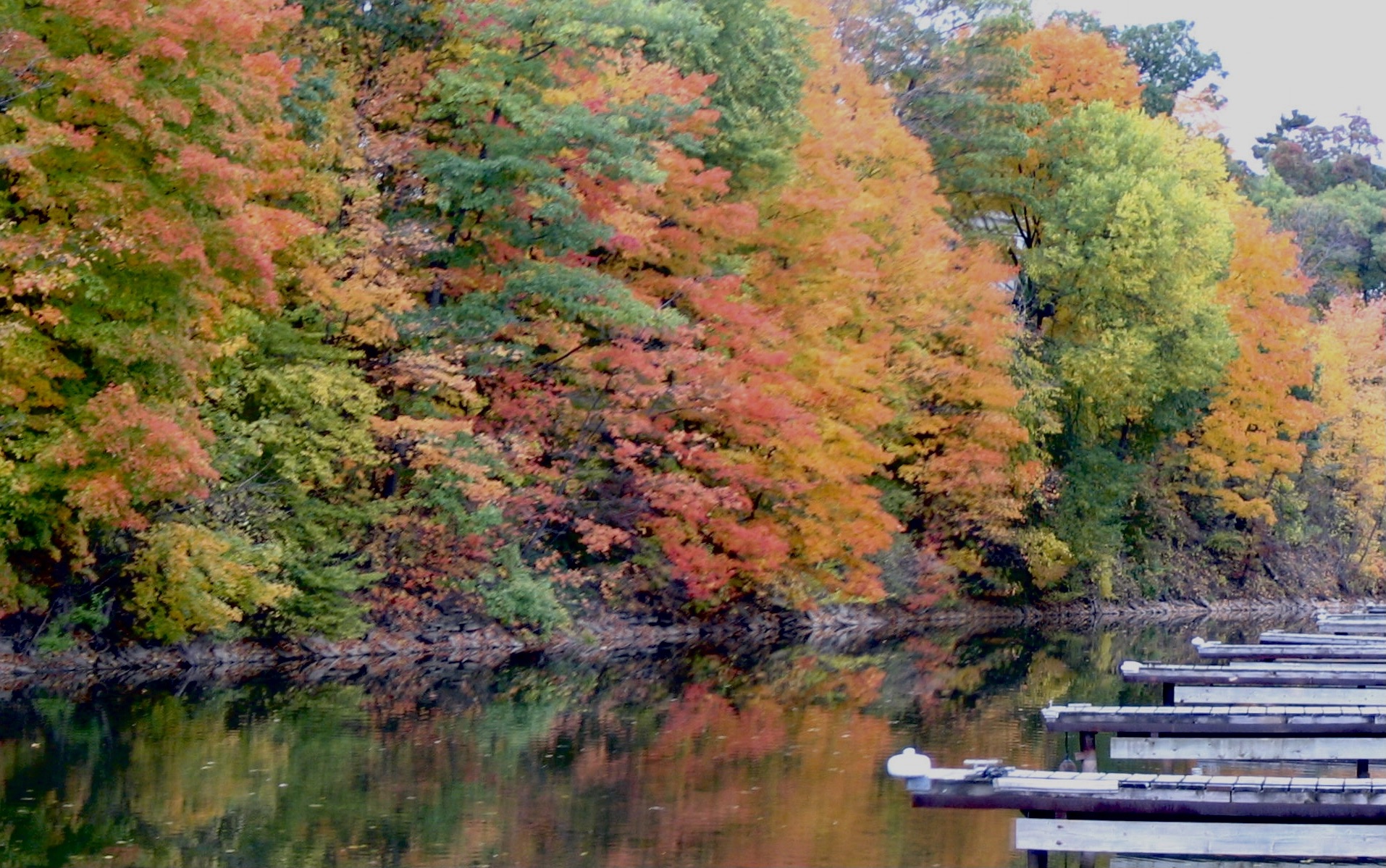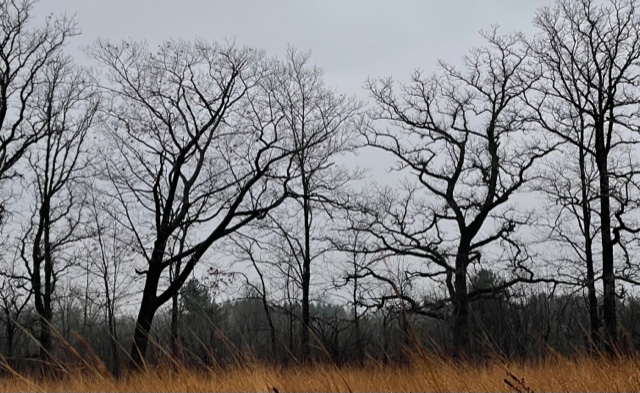
November separates summer and winter.
October is sensuous, the first frost transforming the green cloak of summer yellow, gold, orange and especially for the maples, red.
Asters cover the fields, white, mauve, purple, hardy little yellow-nosed final flowers rushing to reproduce before the cold descends. Summer reappears some days, Indian summer, whose pale warmth draws a few insects back from hiding, encourages the last rose buds to open, making it easy to forget the short time left before the season is gone.
On other days the wind fills the air with leaves – dancing, twisting, swirling, sometimes confetti-like, until they drift into sheltered corners where children find them and, laughing, leap in them, their crispiness felt as much as heard, as the leaves are crushed in the energy of play.
Days are shorter.
Light still lingers in the early evening, tempting strollers to copy the children in a more subdued way as they crunch rhythmically through the fallen leaves that form a blanket beneath every tree.
November is subdued. It has no Indian summer.
Frosts have strengthened, and the flowers are gone, the life which nurtured them lying asleep in the seeds to which their glory was dedicated or huddled in roots underground. Trees are bare to the winds, which sigh through tangled branches. The occasionally hidden nest which sheltered a new generation of birds is no longer hidden, abandoned and ragged as its occupants sought shelter in the South or in evergreens which promise a better refuge from the coming cold.
Days are short and end abruptly when clouds hover low over the slumbering land. The fallen leaves have been tossed about so much by the wind that they are no longer crisp, colourful echoes of summer but shrivelled, dry skeletons awaiting final decay.
And yet November's sombre demeanour is dignified.
Swaying branches against a gray sky trace delicate patterns which change, repeat, change again, with a rhythm known only to the wind. The few birds that remain search for seeds, insulating themselves from scarcity with a layer of fat needed if the snows are deep. Those seeds which escape digestion travel far from where they fall with their myriad siblings beneath the flowers to drop onto a new home which, if less crowded, gives a better chance to complete their destiny, to reproduce, to begin again the eternal cycle of life.
In November, the seasons meet.
Winter advances icy fingers over the land. Snow flies on the north wind and covers the ground. Life is still in this first test of its preparations against the cold. Then winter recedes a little. The snow melts, and a reprieve is granted to those who need more time to prepare.
Rain falls steadily as warm air struggles with cold for ascendancy. Roots and bulbs beneath the surface swell and grow, strengthened, lengthened, thickened against the frost, braced to provide a good start in next Spring's race to flower and reproduce.
Cold winds return, and the rain becomes snow. The ground freezes deeper, and when the cold recedes, it does so less than last time.
Birds and squirrels take advantage of each ebb, and the search for food consumes each day.
Finally, the cold prevails. The land is frozen until spring.
On the few days in which the frost abates, little stirs. But beneath the snow, life is vigorously preparing for the return of warm.
Scrape the snow and find a hardy flower, frozen but not dead, waiting suspended until the frost in its tissues melts, and it can drink again of the nutrients in the earth below.
Field mice make tunnels to food supplies. Birds look for food wherever they can and make up for any shortfall in nutritional need from stored fat.
Winter grips the land by the end of November. There will be no real respite until spring. Thaws loosen their grip, but the land stays frozen, and the warmth is fleeting.
At best, winter allows a glimpse of November, no imitation of summer, briefly reflecting the uncertain advance of frost as it slowly conquers the season of warmth and life.
